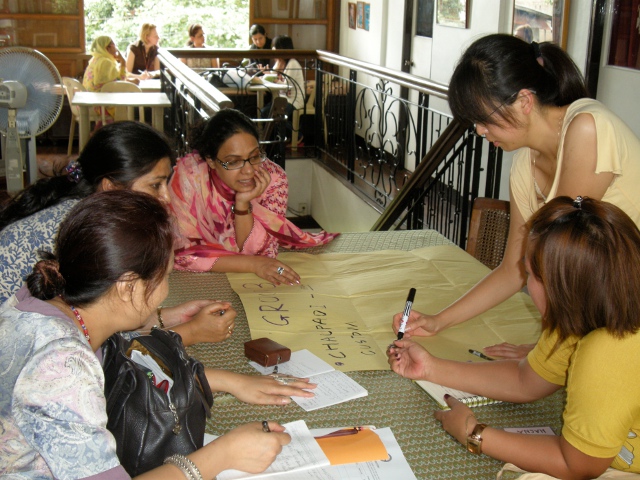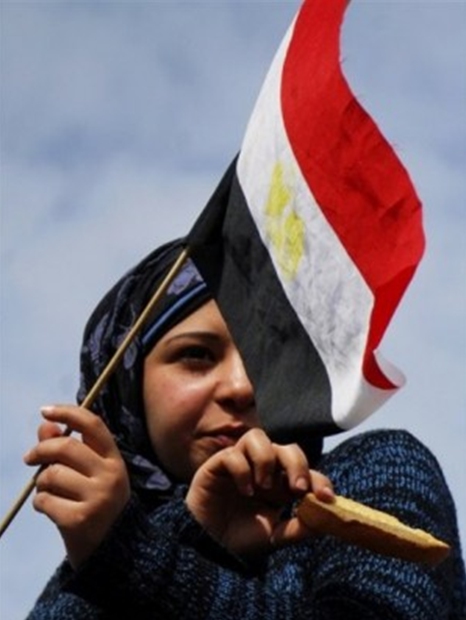- Details
“Empowering and exciting”
“I will take these advocacy tools back to my community”
Isis International Activist School participants
The Isis International Feminist Activist Schools, launched in 2010, provide training for women from countries across the global south in using communications for their advocacy work. The Schools last from a few days to a few weeks and are developed in partnership with the groups and organisations requesting the training. The Activist Schools work with the participants to build understanding of the issues, provide technical training on the use of media and communication, and enhance skills to craft messages for advocacy work.
- Details
27 August 2012
Labasa, Fiji Islands
Our decision making structures in our community need to ensure 50% representation of women, otherwise we will still not be heard, said Sarita who had woken at 4am to prepare her family before she travelled 23 kilometres to Labasa Town where FemLINKPACIFIC’s multi-media campaign "Not Just Sweet Talk" got underway today.
- Details
By Team FI MariemeHelie Lucas is an Algerian feminist, sociologist, political theorist and author known for her work against religious fundamentalism. Currently based in France, Lucas was born in Algeria to a 'family of feminists' and had been active in the liberation struggle of Algeria. She founded the Women Living Under Muslim Laws (WLUML) in 1984. The former international coordinator of WLUML, Lucas founded Secularism is a Women's Issue (SIAWI) in 2005.
MariemeHelie Lucas is an Algerian feminist, sociologist, political theorist and author known for her work against religious fundamentalism. Currently based in France, Lucas was born in Algeria to a 'family of feminists' and had been active in the liberation struggle of Algeria. She founded the Women Living Under Muslim Laws (WLUML) in 1984. The former international coordinator of WLUML, Lucas founded Secularism is a Women's Issue (SIAWI) in 2005.
- Details
http://www.womensfundingnetwork.org
Women's Funding Network connects and strengthens more than 160 organizations that fund women's solutions across the globe, making us one of the largest collaborative philanthropic networks in the world. Our members are women's foundations that span public charities, private foundations and funds within community foundations.
- Details
by Nina Somera
The Philippine Congress is set to vote on the reproductive health bill. As in the last 16 years, the day can render the bill as a political threat due to the enigmatic but non-existent "Catholic vote" and therefore dispose it as just another pile of papers. But Congress can also make history by breaking free from a modern frailocracy, acknowledging poverty from the faces and bodies who endure it, and therefore making sense of the democracy. More importantly, it can make a difference in the region as it gives reproductive justice a chance to inform governance.
Read more: The Philippine RH Bill: A Chance for Reproductive Justice in the Region
- Details
Versión en español a continuación
By Sara Aguirre Sánchez-Beato, Isis International
The Philippines: the Reproductive Health Bill or HR Bill has been under discussion for the last 15 years, representing one of the most controversial issues in the country nowadays. On August 7 the House of the Representatives will vote on it. This Bill aims at granting women access to maternal health care, family planning and sexual education, to provide women (and men) with the right and accurate information that will enable them to decide if and when they will have children. Decision-making is only possible when a human being is aware of the alternatives she or he has and can actually have access to them; otherwise freedom does not truly exist. The RH Bill, If passed, will be empowering for the population and will ameliorate women's and children's health, especially for the poorest. Abortion is illegal and still will be if the RH Bill passes.
Page 15 of 62





 The
The 
 Isis Resource Center holds one of the largest feminist collections of materials in the Global South. With 40 years of publication experience, Isis holds a vast collection.
Isis Resource Center holds one of the largest feminist collections of materials in the Global South. With 40 years of publication experience, Isis holds a vast collection.